- Home
- Johnny D. Boggs
Kill the Indian Page 2
Kill the Indian Read online
Page 2
That might have been Daniel’s only victory at Carlisle. He could remember the beatings, still feel the sharp sting of a switch against his back or one of the School Mother’s rulers smashing his knuckles. Punishment for speaking his true tongue.
“You are no longer a savage!” School Mother Hall had admonished him. “You must speak English!”
They had made him pray to the pale-eyes god. Taught him to speak the pale-eyes tongue, taught him to learn the pale-eyes trades, taught him to eat like Pale Eyes, think like Pale Eyes, be a Pale Eyes.
Daniel had fought. Fought against all of them at first, and he was not alone. Lakota boys and girls fought. Kiowas resisted. Cheyennes argued. Some even died, not from the whippings, but of sickness, of broken hearts. They had been buried like Pale Eyes, in wooden boxes, buried deep in the smelly Pennsylvania earth far from their homes.
“Who are you?” School Father Pratt had once asked him, when School Mother Hall had brought Daniel into Pratt’s office and told the bluecoat that Daniel would be better off sent to the prison in Florida, that he would never learn to follow the white man’s road, that he would always be a savage. It was in his heart.
“Who are you?” Pratt had repeated.
“Nermernuh,” he had answered in the language of The People.
“Comanche, eh?” That the School Father knew enough of The People’s tongue surprised Daniel. Pratt rose from his chair, and moved around the desk. Daniel’s fingers balled into fists. He stared ahead, not looking at the School Father, just staring at the portrait of Abraham Lincoln hanging on the wall behind the desk. “I was commissioned a second lieutenant back in ’67. My first station was at Fort Arbuckle in Indian Territory. I’ve been to Fort Marion, son. Three years there as a jailer. Trust me, Daniel. You don’t want to go to Florida.” Pratt had sighed, shaking his head. “Many white men and women would like to see your race exterminated. I don’t believe that’s right. It certainly isn’t Christian. We must live and work together. But you’re Comanche. Perhaps you think differently.”
Abraham Lincoln had not moved. Daniel had not blinked.
“I wanted to bring Comanches,” Pratt had continued. “More than just one. More Kiowas. More of the Indians I had gotten to know during my duty in the Territory, and there had already been schools established on the reservation. But Commissioner Hayt insisted that we start with primarily Sioux. Use the children there. They would be hostages, force the Sioux to stay on their best behavior. But you’re Comanche.”
Silence.
Daniel had kept staring at Abraham Lincoln.
Slowly School Father Pratt had stepped in front of him. “Wasn’t your mother Mescalero?”
Daniel couldn’t help it. His shoulders sagged, and he looked away from the Great White Father and into School Father Pratt’s eyes. At that moment, Daniel knew the Pale Eyes had beaten him.
His father, who had taken the name Marsh Hawk, had been a Kwahadi warrior who had been shipped off to Florida. Soldiers had shot him when he had tried to escape from the train taking those prisoners to Fort Marion. Dying a fitting death for a warrior. Yet it was true. His mother was Mescalero Apache, and Daniel could remember boys his own age, some younger, and men much older often teasing him. “Your blood is not pure,” they would say. “You are not whole.” Or even worse: “You are not Nermernuh.”
Years later, after Daniel had accepted the paper that said he had been graduated, School Father Pratt had smiled, shaken his head, and said, “You’re one of the best students I have had, Daniel. Other Comanches, I hope, will follow the example you have set, son.”
Charles Flint was one of those.
Flint had arrived the year Daniel had left Carlisle, and had gone to work in those coal mines. After seven years of learning to be a white man, Daniel had returned to the Territory, to his home. Now he was a sergeant in the tribal police, a Metal Shirt, earning $8 a month. Charles Flint had returned from Pennsylvania a year earlier, and now worked for the Pale Eyes, George McEveety, who ran the trading post between the agency and Fort Sill.
“He’s a crackerjack bookkeeper,” Mr. McEveety said. “Got the best head for numbers I seen in any man, and I’m talkin’ ’bout white men. Not just Injuns.”
We are a lot alike, Daniel thought, Flint and me. “White Comanches,” Mr. McEveety would say.
Glancing at Flint, Daniel realized White Comanche probably applied to Charles Flint more than himself. Two, maybe three years younger than Daniel, Charles Flint kept his raven-dark hair closely shorn, and sat bolt upright in the chair in front of Agent Biggers’s desk, hands folded neatly on his lap, a soft black fedora resting on his crossed knee. Despite the heat, he wore a double-breasted coat of gray wool, although he had unbuttoned it, matching trousers, and Congress gaiters that, if they weren’t covered with so much dust after the walk from the trading post, would have been as dark as his hair and eyes. A red satin tie clung tightly to his neck, dangling over the plaited-front, polka-dotted shirt of fine cotton. A silver-tipped mahogany walking cane rested against the arm of his chair, and Daniel could hear the ticking of Flint’s gold watch. If Flint’s skin had not been so copper, he could have passed for a Pale Eyes.
Yeah, School Father Pratt would definitely be proud of Charles Flint.
But proud of Daniel? No, Pratt would likely consider Daniel … what was the word he had heard Agent Biggers use once after a Sunday sermon?
Backslider.
Daniel’s hair had grown long, and now hung in braids over his shoulders. His shirt, a flowery calico of red, green, yellow, and blue, came from the trading post, and his gray coat-turned-vest, an artifact from the Centennial Exposition, was pale-eyes clothing. Yet the bear-claw necklace, the buckskin leggings, and his comfortable moccasins were Comanche. And his hat, stiff-brimmed, high-crowned, caked with dust and made and sold by Pale Eyes, was the kind you’d find on just about every Comanche man on the reservation these days. Daniel had dressed his up by sticking a hawk feather in the band.
A man cannot hide behind clothes, Daniel knew. Charles Flint dressed like a pale-eyes bookkeeper. Daniel wore the clothes of a Comanche Metal Shirt. After years at Carlisle, however, both struggled trying to accept who they were, what they had become. White? Comanche? Or, in Daniel’s case, a pale-eyes-educated, Mescalero Apache-Nermernuh mongrel.
“Captain Pratt thought this would be a great opportunity.” Joshua Biggers was speaking again. Daniel looked up at the agent. “Captain Hall has requested that Quanah join him and the other stockmen in Fort Worth to negotiate a new lease on The Big Pasture.”
Daniel only knew Captain Hall by name and reputation. For a while, Hall had commanded a Ranger company—a taibo Metal Shirt, Daniel mused—and before that had served as peace officer in a couple other North Texas towns, but had not worn a badge for several years now. He was president, Daniel remembered, of the Northern Texas Stock Growers’ Association. Just before Daniel had returned to Indian Territory, however, Hall had served as an agent up at Anadarko, but had been removed. Daniel wasn’t sure why, although he suspected the captain had been charged with graft. Practically every agent on every reserve in the Territory had been charged with graft. He hoped Joshua Biggers would be an exception.
That tenure on the reservation, however, had led Captain Hall to meet and befriend Quanah Parker, which now came in handy since the captain operated a large ranch down in Texas.
Texas longhorns needed grass, and grass could be found aplenty on the Comanche reservation.
“Captain Pratt says this would be a wonderful chance for you two young men, and Quanah, to show these Texians how much improvement has been made on the reservation,” Joshua Biggers continued. “They have arranged speeches at the Wednesday Woman’s Club and on the City Hall lawn. Captain Hall and Captain Pratt will pay all expenses for you. It will be a grand adventure, and an education to be sure.”
To be sure. Daniel rubbed his crooked nose with two fingers. The last time—the only time—he had traveled to Fort Worth, he h
ad damned near gotten himself beaten to death. The nose was a reminder. Well, actually, that had happened in Dallas, but Fort Worth hadn’t been that much better.
With the exception of the Queen City Ice Cream Parlor, he remembered.
Texas cities were pretty much all the same. At least, that’s what Hugh Gunter always told him. A “God-awful state” peopled with “fool Texians.” On the other hand, Daniel wasn’t sure his Cherokee friend and mentor had ever really set foot in Texas.
Charles Flint cleared his throat. “We would go to Fort Worth with Quanah?”
Not a trace of The People when he spoke, Daniel marveled. Half the time, Daniel still spoke in grunts and snorts, like most reservation Comanches. What would School Father Pratt say when he hears me speak? he wondered.
“Yes.” Agent Biggers’s head bobbed like a rocking horse. “Certainly.”
Daniel studied Flint. He had removed the fedora from his kneecap, and was crushing the soft felt hat in his hands, staring directly at the young Baptist agent.
Daniel liked and admired Quanah, but not all of The People did. Daniel had been just a young boy, and Flint—in those years known only by the name his father had given him, Tetecae—had been even younger. Yet Daniel remembered the hunger, the pain. He could recall the cries of the young babies, the weariness everyone felt. Bluecoat Long Knives had killed their pony herds, burned their villages. Then there were the other taibo men, Pale Eyes who had killed buffalo by the thousands, more heartless than the bluecoat Long Knives. In the year Pale Eyes called 1875 but that The People sadly recalled as The Year The Kwahadis Quit Fighting, Quanah had been forced to lead the last of the Kwahadi band, the last of The People still resisting the Pale Eyes, to surrender at the bluecoat fort built near Cache Creek, in what not only once had been The People’s homeland, but as sacred ground as The People had known.
Pale Eyes had made Quanah Parker the chief of all The People.
Some Nermernuh resented that.
Maybe Daniel saw much of himself in Quanah. Daniel’s mother had been Mescalero; Quanah’s was a white woman that had been captured on a raid in Texas. Daniel had heard some men complain that Quanah was not pure, was not truly of The People, but never to Quanah’s face. As a warrior, he had been relentless in his fight to keep The People free. As the designated chief on the reservation, he now understood how hopeless fighting the Pale Eyes was.
So he took the white man’s road. Lived in a big, white-man house the Texas cattlemen had built for him. He encouraged the mothers to send their children to mission schools. He encouraged the men to eat beef, for there were no more buffalo. He wore pale-eyes clothes even better than what Charles Flint donned.
In his own way, however, Quanah resisted.
Every Indian agent assigned to the reservation—Joshua Biggers included—had tried to tell Quanah that he must have only one wife. Yet Quanah still had eight. When he spoke English, the words were broken, often butchered. Yet when he spoke the tongue of Nermernuh, it was pure, powerful, and forceful, and not lazy reservation talk.
Daniel waited to hear what Charles Flint would say.
“I must seek counsel with my father on this matter,” he said. He rose, bowing, and extended his hand to Agent Biggers. He reshaped his hat, set it atop his head, and walked outside.
Confused, Joshua Biggers turned to Daniel.
“I thought he’d jump at the chance to go to Fort Worth.” Biggers’s head shook slowly. “I hope he’ll go. Or you. Else, I’ll have to send Frank Striker to interpret, and I’d rather have Frank here to help me.”
“I’ll go,” Daniel said. He remembered the peach ice cream at the Queen City Ice Cream Parlor, but he had also recalled hearing Deputy US Marshal Harvey P. Noble say that butter pecan tasted even better.
Daniel tried to shake off this thought. Maybe he was becoming more Pale Eyes. But Charles Flint? Seeking out his father before making a decision? Tetecae was showing that he had not forgotten all the ways of The People.
Chapter Three
Ration day came, as always, with much fanfare among The People. Men dressed in their best war shirts, shunning the open-crown pale-eyes hats for eagle feathers or dusty buffalo headdresses, smiles carved among the crevasses of the old women’s wrinkled faces.
Toddlers stumbled. Dogs yipped, their tails wagging. Horses snorted. Young women sang, their eyes bright with joy. Boys acted like men. Men acted like boys.
By the corrals of the agency, Joshua Biggers, taibo cattlemen, missionaries from the schools, soldiers, and a half dozen laundresses from nearby Fort Sill watched. Daniel recognized the looks on the faces of those Pale Eyes. It was the same look he and his fellow miners had revealed when Adok Król had chided them into attending the Atkinson Dime Museum in Pittsburgh. Seeing the half-man, half-woman with the beard and arms thicker than Adok Król’s had turned Daniel’s eyes bulging. Watching a man swallow a sword had left Daniel’s muscles tightening in his bowels. He knew those looks. Disgust. Fear. Amazement.
The corral gate swung open, and inside rode five boys, the tails of their painted ponies tied up, their small hands gripping huge lances. Spears carved from wood by old men, the way The People once hunted buffalo. No rifles. The People did not care to hunt that way, and this was as close to hunting buffalo as … Daniel shook his head.
Yipping excitedly, mimicking coyotes, the boys kicked their horses into the midst of the bawling longhorns, got the beefs running, raising dust, and began thrusting lances into the sides of the cattle. Women sang louder. Older men, the fathers of these teen-agers, laughed, pointed, called out encouragement.
A Negro laundress fainted. A white woman soon joined her.
When the slaughter was complete, the women came in, with skinning knives and buckets. Kneeling beside the revived laundress, Joshua Biggers mouthed a prayer, as he always did on ration day.
As a member of the tribal police, and drawing his $8 in government script, Daniel was not eligible for rations. It was his job to keep the peace, make sure the lines moved as men and women stood in line to get their monthly rations: sugar and flour, both often not worth eating, corn that Mr. McEveety was decent enough to trade for coffee, barrels of salted pork, and sacks of bacon. Earlier that morning, Daniel and Ben Buffalo Bone, with Agent Biggers watching, had opened some of the barrels and sacks. Often, suppliers would put coal in the bottom of the barrel and fill the sacks with more rocks than rancid meat. But this time, the rations were fairly acceptable.
“My son remembers not the days of cuhtz,” a voice said. “Do you?”
Daniel turned.
Isa-tai’s shadow fell across Daniel’s face. He was large, even for a man of The People, needing a neck like a bull to keep his huge head from sinking into his shoulders. A long strand of hair fell across his wide cheek. The strand was well-placed by the Kwahadi holy man. Isa-tai was just vain enough to try to hide the scar an angry Cheyenne had given him years earlier.
He had wrapped a trade blanket around his waist, and wore a calico shirt and gray woolen vest, a red silk bandanna secured around his throat by a silver slide. A gold wedding band tightly gripped his left pinky, just between the fingernail and first knuckle, a ring he had taken off a pale-eyes woman killed during a raid up in Kansas, and a conch-shell hair-pipe breastplate, decorated with Russian blue beads and German silver, clung tightly to his broad chest, the buckskin neck strings wrapped with ermine skins.
“Yes, Tsu Kuh Puah,” Daniel answered, using the term of respect for an older man. “I remember.”
Isa-tai grunted. Standing slightly behind him, his son, Charles Flint, still dressed in suit, tie, and fedora, dropped his head.
Yes, Daniel remembered when The People ate buffalo, not cattle. Cuhtz was indispensable. Hide and hair, blood and bones, just about everything on the buffalo would be used by The People. He pictured his mother, holding his hand, singing from the top of a mesa, pointing out her husband, Daniel’s father, down below as the Kwahadis chased a thundering herd of buffalo on the Llan
o Estacado of the Texas Panhandle. Dust soon swallowed everything below, and the hoofs of the great herd drowned out the shouts of the men.
He pictured his father, standing before him some time later, holding a liver in his bloody hand. He could taste the liver now, after his mother had emptied the contents of the buffalo’s gall bladder onto the raw meat. His mother had laughed, and gone back to work, singing as she skinned and butchered the buffalo cow.
“All gone,” Isa-tai said. His face showed no emotion. “I will tell you two the story of the time before cuhtz.”
Charles Flint lifted his head. Daniel nodded, waiting.
Isa-tai spoke.
“The People were playing games when a strange old man approached them, saying nothing, a quiver over his shoulder but he held no bow. He watched The People play, then said it was time for him to go shit. So he removed the quiver, laid it on the ground, and went down to the creek. One of The People decided to look into the quiver, and he pulled out a large piece of fat. ‘This man has plenty of meat,’ he announced.
“The old man came from the creek bed and changed into a bird. He flew over the mountain.
“Naturally The People were curious. They wanted to follow him. They wanted to fly over the mountain, to see what was there. So one man changed into an owl, because an owl flies quietly, and another became a quail, because a quail walks quietly. These two flew over the mountain as well. There, they saw a lone teepee, facing east, as is the custom of The People. At sunset, Owl flew to the teepee, but the old man knew that Owl was really one of The People, so Owl flew away and told Quail. Quail then walked softly to the teepee, and returned, telling Owl … ‘There are three people inside … the old man, his wife, their daughter.’ Both Owl and Quail returned to the teepee, and waited, listening.
“‘Mother, I am hungry,’ the daughter said.
“‘Shush,’ the mother said. ‘Those Indians might be here.’

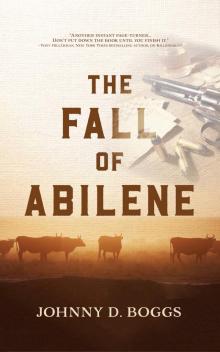 The Fall of Abilene
The Fall of Abilene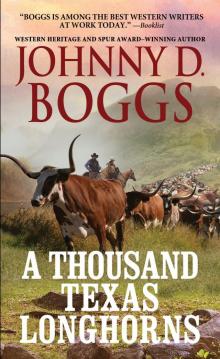 A Thousand Texas Longhorns
A Thousand Texas Longhorns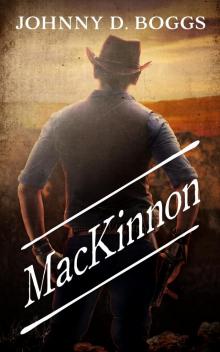 MacKinnon
MacKinnon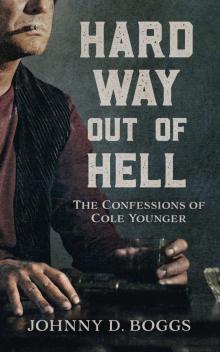 Hard Way Out of Hell
Hard Way Out of Hell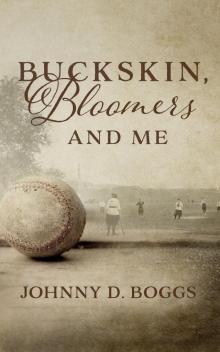 Buckskin, Bloomers, and Me
Buckskin, Bloomers, and Me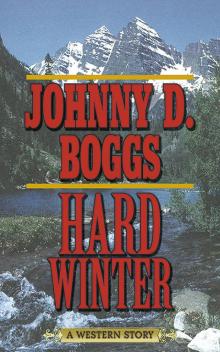 Hard Winter
Hard Winter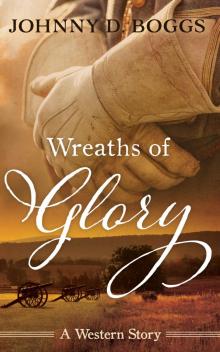 Wreaths of Glory
Wreaths of Glory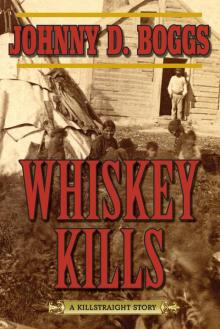 Whiskey Kills
Whiskey Kills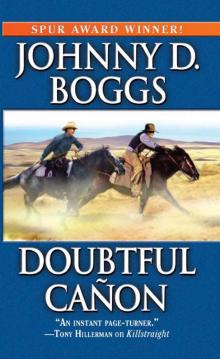 Doubtful Canon
Doubtful Canon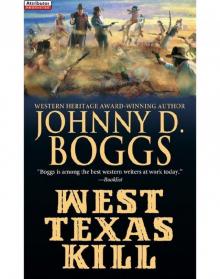 West Texas Kill
West Texas Kill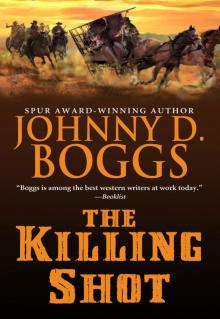 The Killing Shot
The Killing Shot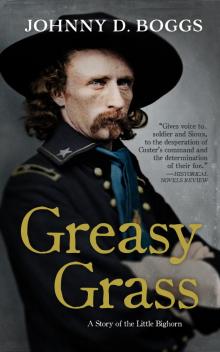 Greasy Grass
Greasy Grass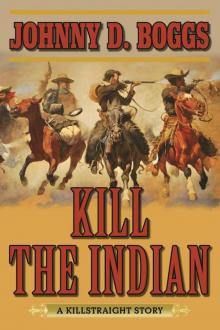 Kill the Indian
Kill the Indian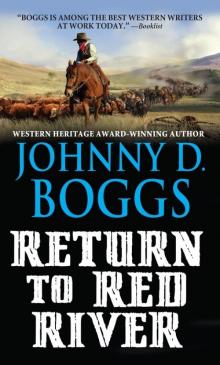 Return to Red River
Return to Red River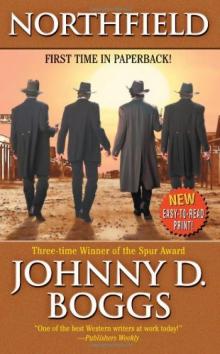 Northfield
Northfield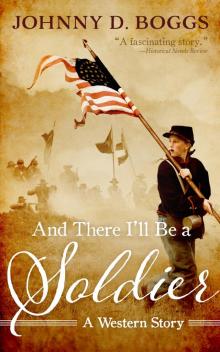 And There I’ll Be a Soldier
And There I’ll Be a Soldier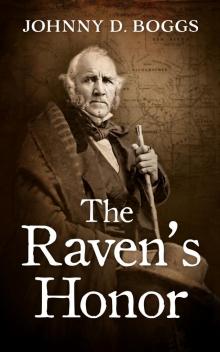 The Raven's Honor
The Raven's Honor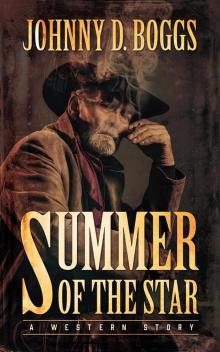 Summer of the Star
Summer of the Star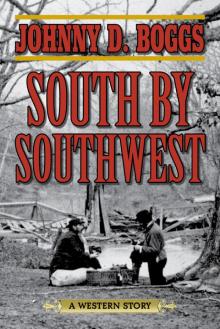 South by Southwest
South by Southwest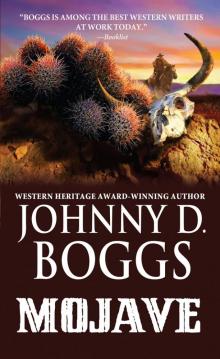 Mojave
Mojave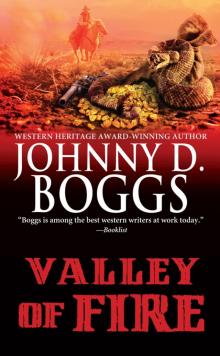 Valley of Fire
Valley of Fire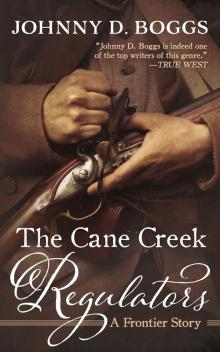 The Cane Creek Regulators
The Cane Creek Regulators